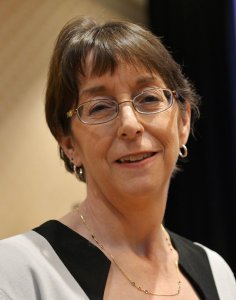Presented By: Center for Southeast Asian Studies
CSEAS Lecture Series. Living with the Mekong: Archaeological Perspectives and Alternative Futures
Miriam Stark, Professor of Anthropology, University of Hawaiʻi at Mānoa

The Mekong River is Southeast Asia’s longest drainage system, and more than 60 million people today rely on the Mekong River to support farming, fishing, and other livelihoods. Watering the region’s rice bowl and serving as a biodiversity hotspot, the Mekong is also a contested space whose existence is now threatened by both human and natural forces. A complex web of international agreements and a fully-functioning multi-country Mekong River Commission have not prevented the construction of six hydroelectric dams in China, with more than ten major dams in the planning stage for Laos and Cambodia, and dozens more on its tributaries. These dams, and increasingly unpredictable rainfall, have already impacted Mekong River communities downstream, and the future promises to be even more bleak. What was life like before the dams? How did the Mekong River ecology shape the everyday life of its communities in the premodern world? What were some unexpected consequences of these practices, and how did communities and the state manage these problems? Archaeological research in Cambodia offers insights on major turning points in how Khmers managed the art of living with their Mekong River: the Pre-Angkorian and Angkorian worlds.
Dr. Miriam Stark (BA, U Michigan, MA & Ph.D., University of Arizona) is a Professor of Anthropology at the University of Hawai’i at Mānoa and Director of the UHM Center for Southeast Asian Studies. She has worked in Cambodia since 1996 and her last decade of publications examine urbanization, ceramic production and distribution, and power relations in premodern Cambodia. Stark’s archaeological research program integrates research with capacity-building in collaboration with Cambodia’s Ministry of Culture and Fine Arts and its various units, involving nearly 100 students, interns, and archaeological professionals since launching her first field-based project in the country. She is currently a Fulbright Senior Specialist, Honorary Research Associate with the University of Sydney, editorial board member for 13 journals, and a member of the Cultural Property Advisory Committee (US Department of State).
Register at http://myumi.ch/48Pnn
Dr. Miriam Stark (BA, U Michigan, MA & Ph.D., University of Arizona) is a Professor of Anthropology at the University of Hawai’i at Mānoa and Director of the UHM Center for Southeast Asian Studies. She has worked in Cambodia since 1996 and her last decade of publications examine urbanization, ceramic production and distribution, and power relations in premodern Cambodia. Stark’s archaeological research program integrates research with capacity-building in collaboration with Cambodia’s Ministry of Culture and Fine Arts and its various units, involving nearly 100 students, interns, and archaeological professionals since launching her first field-based project in the country. She is currently a Fulbright Senior Specialist, Honorary Research Associate with the University of Sydney, editorial board member for 13 journals, and a member of the Cultural Property Advisory Committee (US Department of State).
Register at http://myumi.ch/48Pnn